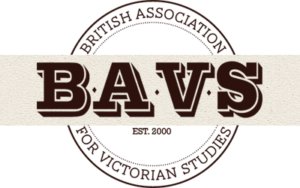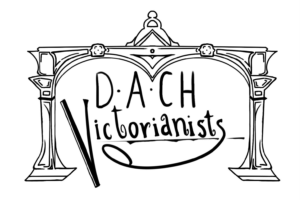Participate virtually and locally
COVE
Read papers and participate in asynchronous annotation of papers dynamically organized by content and topic at the Collaborative Organization for Virtual Education (COVE).
Digital Events
Attend monthly synchronous events on special topics sponsored by caucuses and scholarly groups between January and August 2024.
Threads
Browse conference papers using topic-based "threads" of related papers.
Overview
Can we imagine an event that contributes to a more sustainable future while providing some advantages that are not possible at a regular annual conference? Those advantages include: increased attendance; more intimate gatherings; a less impacted schedule; reduced costs; and greater international networking and collaboration. Our idea: maintain the pleasures of a face-to-face meeting by hosting “hub” events across the world, encouraging people to attend the closest one to reduce air travel and avoid long-haul flights. Most hubs will have one panel at a time to create an intimate collective experience. Then, we will link all the papers delivered by way of COVE Conferences, a password-protected, asynchronous annotation platform available only to attendees. There, you can read papers of most interest to you at your leisure, sharing insights or queries with the authors of the papers. The face-to-face hub events will occur at the end of September; we will lead up to those meetings with monthly Zoom events over the 2024 calendar year and conclude the conference with with Zoom events linking participants across time zones to discuss large-scale, global issues.
For queries, please email organizers@event2024.org.
Learn more about our conference hubs
Cross-Hub Lead Organizers
Dino Franco Felluga, Purdue University
Joshua King, Baylor University
Chris Adamson, Saint Mary’s University of Minnesota
Cross-Hub Research Assistants
Monica Wolfe, Purdue University
Harrison Glaze, Baylor University
Hub Host Lead Organizers
Australia
Lesa Scholl (Melbourne)
Canada
Jason Camlot, Tina Choi (Montréal)
Germany
Heidi Liedke, Sophia C. Jochem (Frankfurt)
Irmtraud Huber, Julia Ditter (Konstanz)
Korea
Hyungji Park (Seoul)
UK
Adrian Wisnicki (BAVS Coordinator)
Ann Heilmann (Cardiff, Wales)
Alexandra Foulds, Louisa Yates (Gladstone’s Library, Hawarden Wales)
Jo Carruthers, Mark Knight (Lancaster, UK)
Michael Shaw, Christine Ferguson (Stirling, Scotland)
Justin Livingstone, Alex Murray (Belfast, Northern Ireland)
USA
Richard Menke, LeeAnne Richardson (Atlanta)
Aeron Hunt, Maia McAleavey (Boston)
Emily Harrington (Boulder)
Kathleen Frederickson, Liz Miller (Davis)
Charles LaPorte, Jesse Oak Taylor (Seattle)
Joshua King (Waco)
Emily Allen, Dino Franco Felluga (West Lafayette)
Advisory Board
Emily Bell, University of Leeds
Peter Capuano, University of Nebraska-Lincoln
Tina Choi, York University
Lydia Craig, Loyola University, Chicago
Jay Clayton, Vanderbilt University
Dennis Denisoff, University of Tulsa
Kate Flint, University of Southern California
Caroline Levine, Cornell University
Patricia Pulham, University of Surrey
Talia Schaffer, Queen’s College, CUNY
Cannon Schmitt, University of Toronto
Adrian Wisnicki, University of Nebraska-Lincoln
Registration Deadlines
August 6: deadline for presenter registration and for refund requests
September 1: registration deadline for hub attendees who are not presenting papers and who wish to have access to COVE and virtual sessions following hubs
Some hubs have set other dates:
- Cardiff Hub
- Deadline for presenter registration: June 7
- Deadline for non-presenter registration: August 23
Sponsors and Fees
Running a successful online conference is expensive; we have unpaid expenses from all of the infrastructure we have put into place for this event: Whova, software purchases (FileMaker Pro, Photoshop), labor, banking costs, and requests for changes to how we originally set up our event. Despite these expenses, we have worked hard to keep central registration fees low. (Each hub has its own low additional hub fee.) If we have 300 regular registrations at $100 and 200 student/contingent at $50, then by the end of EVENT 2024 central registration will have received a total of $40,000. That’s all. RA labor alone will have added up to more than $100,000 by the end of 2024. Regular registration for NAVSA’s Virtual Vancouver conference, by comparison, was around $300. That was caused, in part, by the expense of the Forj platform used for the event (which cost the organizers $35,000). We are building COVE Conferences precisely so that we have a non-profit, NAVSA-owned alternative to expensive for-profit platforms like Forj. All work on building COVE Conferences was covered by external grants: a grant from the Enhancing Research in the Humanities and the Arts (ERHA) program of Purdue’s College of Liberal Arts ($34,500), funds from Baylor University, and a $350,000 grant from the National Endowment for the Humanities, part of which was used on the COVE platform.
Not counting the NEH grant, Joshua King and Dino Felluga have secured $183,000 of funding from a variety of sources at Baylor and Purdue to support EVENT 2024: the ERHA grant mentioned above; a Ross-Lynn fellowship from Purdue’s Office of Research to Dino Felluga to support our dedicated .5 FTE research assistant, Monica Wolfe, over the 2023/24 school year; a .5 FTE research assistantship to Monica Wolfe for the fall 2024 semester from Purdue’s Department of English; and significant funding and extensive in-kind support from Baylor’s College of Arts and Sciences, including a research assistantship for Harrison Glaze.
Each of the hubs has secured funding for their local face-to-face meetings as well. EVENT 2024 seeks to model a federated, collectivist approach to conference organization. We would like to thank the following entities for direct financial or in-kind support of individual hubs: Baylor University (College of Arts and Sciences, Armstrong Browning Library), Boston College (Center for Centers, Department of English, Institute for Liberal Arts, Irish Studies Program, the John J. Burns Library, the Provost’s Office), Brandeis University, Cardiff University, Concordia University, Georgia State University, Gladstone’s Library, Goethe University Frankfurt, Konstanz University (Zentrum für Kulturwissenschaftliche Forschung), Lancaster University, Miami University Ohio, Purdue University (Blue Sky Lab, English, John Martinson Honors College, Office of Research, and School of Interdisciplinary Studies), Queen’s University Belfast, Saint Louis University, Stirling University (Division of Literature and Languages), Texas Christian University, Texas State University, the University of California Berkeley, the University of California Davis (Global Affairs, Graduate Studies, Office of Research, Office of Sustainability), the University of California Santa Cruz (the Dickens Project), the University of Chicago, the University of Colorado Boulder (English Department, Center for British and Irish Studies), the University of Georgia, the University of Illinois at Urbana-Champaign, the University of Iowa, the University of Melbourne (Queen’s College), the University of Rhode Island, the University of Washington (English Department, Walter Chapin Simpson Center for the Humanities), Yonsei University (Department of English Language and Literature, BK21), and York University.





